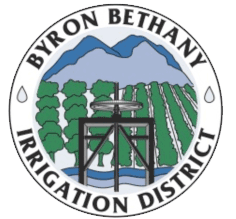Byron, CA (April 17, 2019) – Today, the U.S. Bureau of Reclamation (Reclamation) announced a slight increase in the allocation for South-of-Delta Central Valley Project (CVP) contractors, to 65%. This comes at a time the state’s snowpack is so dense it’s been referred to as a “water supply dream,” and every reservoir used to supply South-of-Delta operations is above 100% of normal.
“Despite an overly abundant water supply,” said BBID GM Rick Gilmore, “this incremental increase is essentially a drop in the bucket. If we can’t even get close to a full, 100% supply this year – then when, if ever?”
“The snowpack surpassed 160% of normal in the northern and central Sierra Nevada,” Gilmore continued. “Meanwhile, reservoirs are in flood control operations. And yet, our growers and ranchers are still being forced to make do with less than their fair share.”
At the outset of the 2019 growing season, the uncertainty created by continually delayed allocation announcements makes it extremely difficult for farmers to plan their operations.
“Reclamation staff understands the challenges and difficulties these decisions create,” Gilmore said. “However, they are boxed in by the biological opinions in the overly-protective Endangered Species Act, which imposes significant restrictions on available water at a time there is more than enough to go around. To add insult to injury, the restrictions that have crippled CVP operations for so long have provided none of the intended benefits to fish species, which continue to decline despite the severe impacts the biological opinions are having on people. We also are concerned that SB1, newly-proposed legislation, may make this problem worse, not better.”
“Never has the problem – and solution – been clearer,” Gilmore said. “It is beyond argument that these runaway regulations must be reigned in. Until then, the CVP can’t fulfill its primary purpose: supplying water to those who supply much of the nation’s food.”
